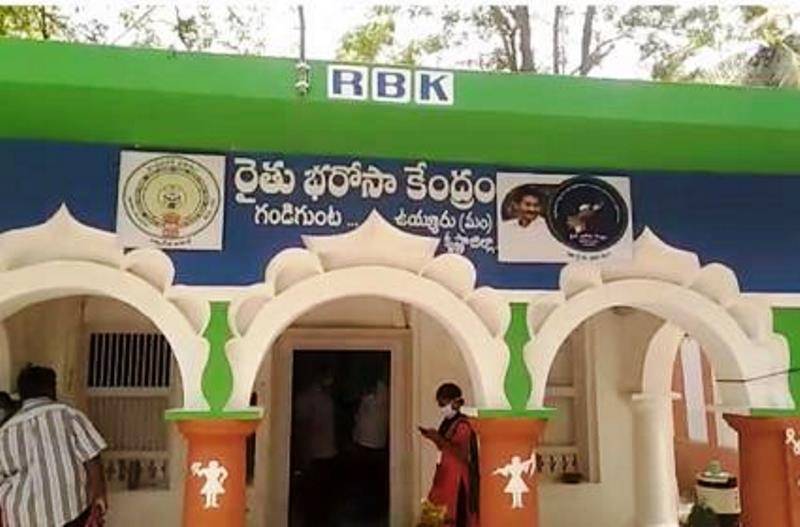
Andhra Pradesh has 35.7% tenant farmers, the second highest in the country & 65-80% of farming in the paddy dominant belts of the coastal districts is done by tenant farmers.
One of the major issues impacting the country’s agricultural sector & its growth is the baffling issue of tenancy. Despite land leasing being an informal & constricted practice, it is widely practiced leaving tenant farmers susceptible to exploitation by landowners. Bringing some break to these previously abandoned farmers, Andhra Pradesh enacted the Crop Cultivator Rights Rules Act (CCRA), 2019 & the crucial Rythu Bharosa Scheme.
Agriculture accounts for 15.96% of India’s Gross Domestic Product (GDP), a major source of livelihood for more than half of its population. Its growth over the years has been trembling from a -0.2% in 2014-2015 to 6.3% in 2016-2017 & then condensed to 2.8% in 2019-2020. The fallout of COVID-19 & the economic consequences has once again forced the discussion on the need to update agriculture policies as demonstrated by the agricultural distress & farmer protests across the country. Aiming to empower farmers economically through market reforms, fair pricing & cash transfers, recently the central & state governments have initiated a slew of changes. However, even then at a time when farmers are clenching with the twin problems of drought & floods, the key issue remains the same- tenant farmers, who are the most vulnerable & marginalized, remain outside the safety net.
As per National Sample Survey Office’s (NSSO) 2013 study, 1 in 7 farm households is a tenant, accounting for nearly 13.65% of total farm households. According to the NABARD All India Rural Financial Inclusion Survey (NAFIS) study conducted in 2015-2016, about 52% of agricultural households were deluged in a
debt trap, with an average outstanding debt of Rs. 1.04 trillion. This prohibition of tenant farmers from institutional credit support is further proved by the recent focus group discussions with farmers conducted by swaniti Initiative in Andhra Pradesh (AP).
AP is a farming state with huge production in paddy, maize & shrimp-aqua, 69.27% of the farmers hold an average landholding of 0.4 hectares & 19.31% have an average of 1.22 hectares, according to the AP Socio-Economic Survey. According to the 70th round of the NSSO report, the state has 35.7% tenant farmers, while the national average is 10.4%. In this backdrop, the state also has farmer suicides at an extreme level, which increased from 664 in 2018 to 1029 in 2019, as per the National Crime Records Bureau (NCRB). Addressing most of these concerns, the state government aims to dispose farmer welfare through the flagship Rythu Bharosa Scheme that emphasizes inclusive growth. Through its constituents, the scheme authorizes farmers, assuring them cash transfer, Rythu Bharosa Kendra’s (RBK), training & a scientific approach to farming.

Benefits of Rythu Bharosa
Rythu Bharosa, one of the core nine pillar welfare schemes of the AP government, incorporates small & marginal farmers (holding less than 5 acres of land) & tenants as beneficiaries, a majority of whom belong to BC, SC & ST marginal communities. A sum of Rs. 13,500 is provided to the farmers, of which Rs. 6000 for small farmers is borne by the Centre under the PM KISAN Scheme. In the case of tenant farmers, the whole amount is delivered by the state government. Three trenches of payments have been released for the year 2019-2020 impacting 46,69,375 farmers of which 1,58,123 are tenant farmers.
In addition to cash transfer, farmers in the state are guaranteed of services like nine hours of free electricity, crop insurance, digging of free borewells, interest-free loans, help in purchasing farm inputs, training & capacity building through RBKs. The farmers can purchase farm inputs through digital kiosks stationed at Rythu Bharosa Kendra’s.
Incorporating some of the preparedness brought in during the pandemic, the scheme also has targets for the opening of food processing units & clusters in each constituency. This helps in collaborating the local logistics supply chain, providing adequate employment opportunities and warehouse management.
Identification of tenant farmers a key challenge
One of the major limiting factors that prohibits the transfer of benefit to tenant farmers is the identification of scheme beneficiaries. AP approved CCRA 2019 aiming at a better tenant- landlord relationship by introducing the CCR card. The card is an agreement between the tenant & landowner & is countersigned by the Village Revenue Officer (VRO). CCRA also encloses provisions for the tenant farmers to get bank loans, inputs & other subsidies.
Rythu Bharosa serves as a model which can be advanced in other states. The scheme also entails proposals of building Janata Bazaars, Warehousing facilities, near the vicinity of the village Secretariats. Recently, as a part of the same, a comprehensive land mapping survey has been announced making use of drones, rovers & making stones. Initiatives like CCR cards should be implemented successfully throughout the country so that a tenant farmer database is maintained. The effective identification of intended beneficiaries, which is a pertinent part of the scheme to prevent leakages, will further pave the way for the doubling of farmer’s income.















